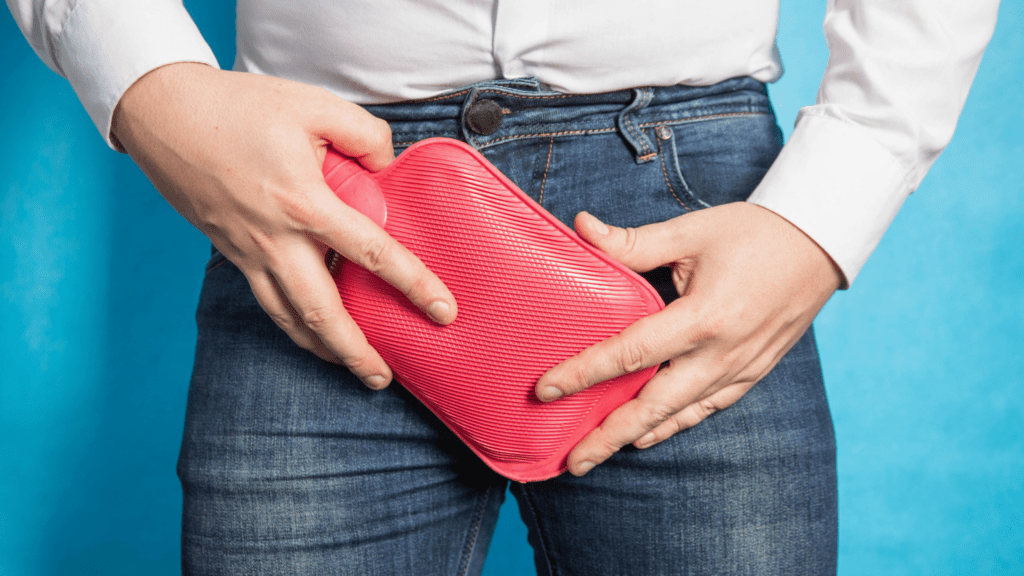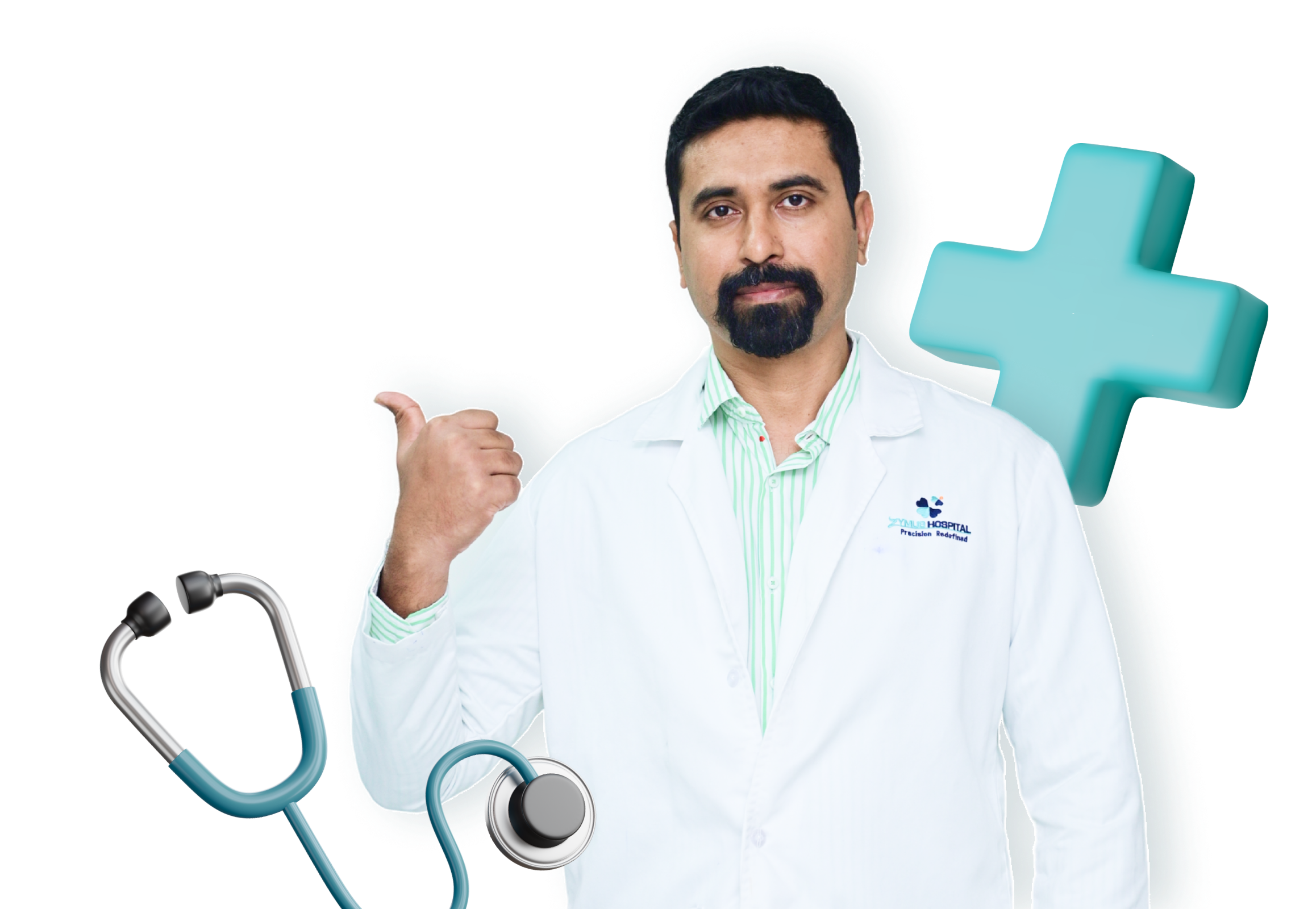Varicocele is the enlargement of the veins within the scrotum, similar to varicose veins that occur in the legs. This condition typically affects one testicle and can lead to discomfort, infertility, or in some cases, shrinkage of the testicle.

Varicocele
Detailed Information
Varicocele is caused by the malfunction of valves inside the veins that drain blood from the testicles. This results in blood pooling in the veins, causing them to enlarge. The exact cause of the valve malfunction is not always clear, but it can be influenced by:
• Anatomical factors: Some individuals may have veins that are more prone to valve failure.
• Increased pressure: Pressure on the veins can lead to blood pooling, such as from a large abdomen or obesity.
• Anatomical factors: Some individuals may have veins that are more prone to valve failure.
• Increased pressure: Pressure on the veins can lead to blood pooling, such as from a large abdomen or obesity.
• Visible or palpable enlarged veins: The veins in the scrotum may feel like a “bag of worms.”
• Pain or discomfort: A dull ache or sharp pain, often worsening after prolonged standing, physical activity, or in warm conditions.
• Testicular atrophy: A reduction in the size of one testicle, commonly on the side of the varicocele.
• Infertility: In some cases, varicocele can affect sperm production, leading to infertility issues.
• Pain or discomfort: A dull ache or sharp pain, often worsening after prolonged standing, physical activity, or in warm conditions.
• Testicular atrophy: A reduction in the size of one testicle, commonly on the side of the varicocele.
• Infertility: In some cases, varicocele can affect sperm production, leading to infertility issues.
There are no definitive preventive measures for varicocele, but some lifestyle habits may help:
• Avoiding excessive physical strain: Lifting heavy weights or activities that increase abdominal pressure may aggravate the condition.
• Wearing supportive undergarments: Supportive underwear, like an athletic supporter, can reduce scrotal pressure.
• Healthy weight maintenance: Obesity can increase abdominal pressure and contribute to varicocele formation.
• Avoiding excessive physical strain: Lifting heavy weights or activities that increase abdominal pressure may aggravate the condition.
• Wearing supportive undergarments: Supportive underwear, like an athletic supporter, can reduce scrotal pressure.
• Healthy weight maintenance: Obesity can increase abdominal pressure and contribute to varicocele formation.
Treatment for varicocele depends on the severity of symptoms and the impact on fertility:
• Observation: If the varicocele isn’t causing pain or infertility, it may be monitored without treatment.
• Medications: Over-the-counter pain relievers may be used to manage discomfort.
• Surgical intervention: If symptoms are severe or infertility is a concern, surgery may be recommended. Procedures include:
o Varicocelectomy: Surgical removal or repair of the affected veins to restore proper blood flow.
o Embolization: A less invasive procedure where a small coil or foam is used to block the enlarged veins.
• Observation: If the varicocele isn’t causing pain or infertility, it may be monitored without treatment.
• Medications: Over-the-counter pain relievers may be used to manage discomfort.
• Surgical intervention: If symptoms are severe or infertility is a concern, surgery may be recommended. Procedures include:
o Varicocelectomy: Surgical removal or repair of the affected veins to restore proper blood flow.
o Embolization: A less invasive procedure where a small coil or foam is used to block the enlarged veins.
Book Your Consultation Now
Schedule an appointment with the leading uro-oncologist in Bangalore, Dr. Anil
Kumar T. Benefit from expert care and advanced treatment options for all your
urological needs, delivered with a patient-centered approach.

Resolve Your Queries
Answers to the most common inquiries about urological conditions, treatments, and patient care. Designed to offer quick guidance and help you better understand, ensuring you feel informed and confident in your healthcare decisions.
Still have queries about Urology & Uro Oncology? Hit the button below.
Accordion Tab Title 2
Lorem ipsum dolor sit amet, consectetur adipisicing elit. Optio, neque qui velit. Magni dolorum quidem ipsam eligendi, totam, facilis laudantium cum accusamus ullam voluptatibus commodi numquam, error, est. Ea, consequatur.
Accordion Tab Title 3
Lorem ipsum dolor sit amet, consectetur adipisicing elit. Optio, neque qui velit. Magni dolorum quidem ipsam eligendi, totam, facilis laudantium cum accusamus ullam voluptatibus commodi numquam, error, est. Ea, consequatur.
Visit Us
Zymus Hospital Address
No.1, K NO. 92, Nanjappa Complex, Kanakapura Rd, Raghuvanahalli, Bangalore City Municipal Corporation Layout, Bengaluru, Karnataka 560062
Menu
Menu
Quick Links
Menu
Copyright © 2024. Dr Anil Kumar T

